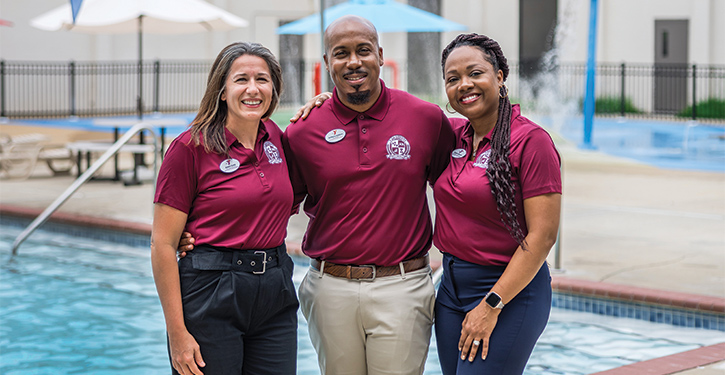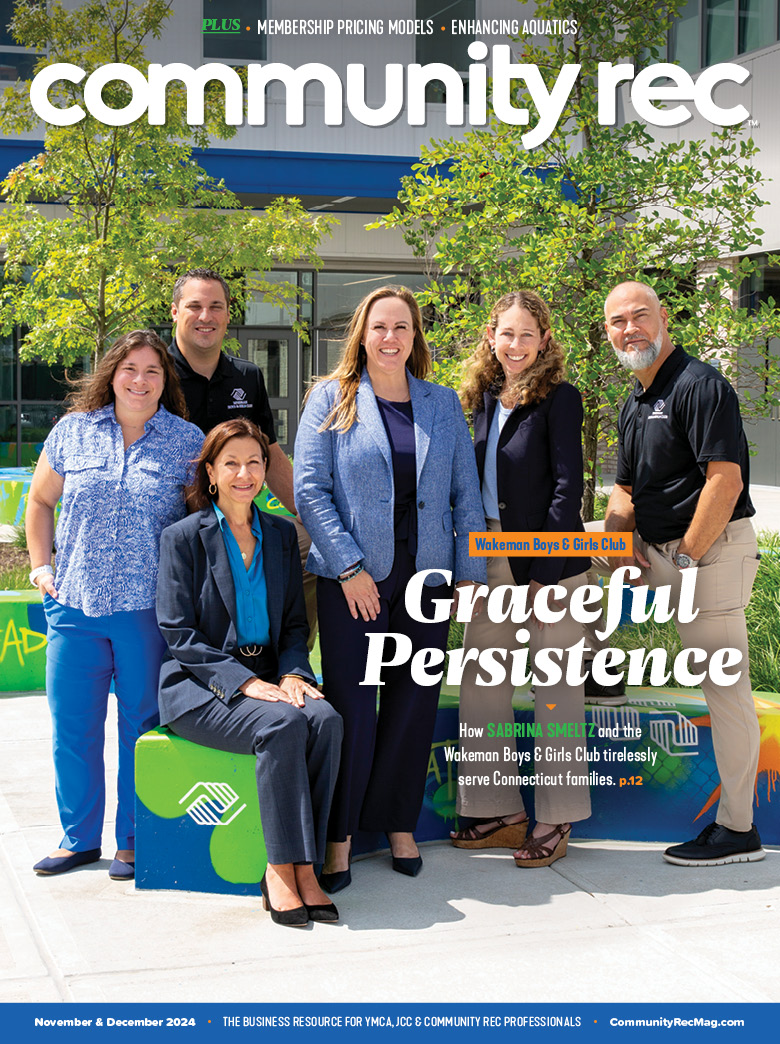Continuously improving the employee experience with Anthony Walters and the YMCA of South Hampton Roads.
The definition of a classroom according to Merriam-Webster is simply “a place where classes meet,” but to Anthony Walters a classroom is life-changing.
As an undergraduate student at Norfolk State University, Walters recalled the first time an African American male professor walked into his classroom. “I had plenty of educators but never had an African American male in front of me,” said Walters. “He lit up the room and he was profound. That day, I changed my major to English/Secondary Education, and not just for teaching purposes — I wanted to be responsible from a leadership standpoint and select other leaders, professors and teachers, and because I believe in strong leadership and strong male mentors.”
Walters’ belief led him to his first role with the Y in undergrad as a day camp counselor at the Mt. Trashmore Family YMCA in Virginia Beach, Virginia — a branch of the YMCA of South Hampton Roads — where he interacted with every energetic, unique camper. From there, he pursued a professional career in education and then transitioned back to the YMCA where he served every age and stage as a family experience director, membership director, executive director (at four different Ys), district vice president and chief strategy officer for Ys in North Carolina and Virginia. Among these roles, Walters was also the director of Y Achievers for the YMCA of Greater Charlotte, as well as the director of organizational advancement for the YMCA of South Hampton Roads. Today, he serves as the president and CEO — the ultimate teacher, leader and mentor.
Since making the decision to turn his love for education into a career with the Y, Walters knew he was embarking on a fulfilling path. He saw the journey as one with incredible moments of “followership” that provided him key leadership opportunities.
“When I got to the Y, it was like being in a classroom and understanding your role as a leader — you’re a teacher, but you’re really leading people. Sometimes it’s a lot of pressure,” laughed Walters. “I was surrounded by people who are really great leaders and I just wanted to practice being a great follower and a good team player. That’s what I mean by followership — what are the attributes it takes to be a good teammate?”
Walters also noted that at some point, all the attributes you pick up are what defines being a good leader. “You have to remember where you came from, and once upon a time, you were part of a team,” said Walters. “You’re still part of a team, and all the attributes it took for you to be a really good follower, you still need to do. Your team doesn’t need someone to point and say, ‘Go this way.’ They need you to roll your sleeves up, get next to them and lock arms. In other words, the team captain doesn’t suddenly stop playing. The team captain is still on the field.”
This view of leadership paired with Walters’ journey — from knowing every kid in summer camp to rocking babies in child watch and working in front line Y service — is why he cares so much about the employee experience.
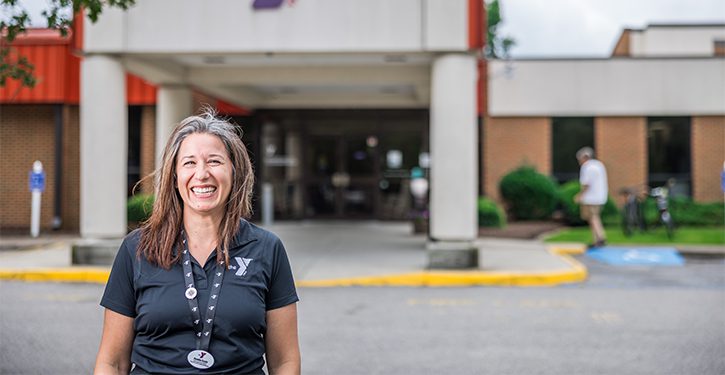
Chief Care Officer
When defining employee experience, Walters said it’s about asking, “Do I enjoy the people I work with, and does the organization that employed me care about my existence?” He pointed out the keyword for him more than anything else is “care.”
“I care — it matters to me how they exist in this organization, because until we get that to be front and center, there’s no way they can be optimal at serving our community,” said Walters. “My job is the chief care officer. When I’m not doing that right, I lose a lot of sleep. The No. 1 responsibility I have is the care and concern for my teammates.”
Walters elaborated understanding employee experience is similar to his background as an educator. “When you’re in the education space, you see 30-plus young people in a classroom and nobody is the same — they come from different walks and backgrounds, they have different lenses and perspectives,” he explained. “As an educator, you appreciate and respect all of it. That’s no different than how I view my role and what I’m responsible for now.”
Through caring about the employee experience, one of the first ways an organization makes an impact on a new teammate is in onboarding and training. This is why the YMCA of South Hampton Roads is launching a new onboarding and training program called Y University that will enhance the way the Y creates belonging.
Y University
In Spring 2022, Amelia Scott’s title changed from a role in marketing to the chief experience officer at the YMCA of South Hampton Roads. This change was part of a conversation with Walters about what they needed to do to level up the organization. “We believe we have all of these amazing service tenets, but how do we make sure staff coming in really internalize those so they can deliver to the community?” explained Scott. “So, we asked ourselves, ‘What do we want for our YMCA? What is the standard we want to measure ourselves against?’ And Disney came up.”
After researching, Scott and Walters went to Disneyland and attended two sessions through the Disney Institute on approaches to quality service and employee engagement. They loved it so much they returned with 17 team members for the full Disney Institute experience, including going out into the park to see the training in action. This investment in the employee experience has directly influenced the launch of Y University.
Modeled after the Disney Institute, the extended orientation approach is designed to provide the newest team members the proper experiences to learn, develop and grow. This starts with communicating mission, vision and values while making sure team members of all levels hear critical details of service tenets consistently and with passion from leaders in the organization.
Y University will not only have a positive impact on Y members and the community, but more importantly, it will prioritize the most valuable asset of every organization and business — its staff.
In fact, these are the people who Janeine Spencer, the chief people and culture officer at the YMCA of South Hampton Roads, make her focus.
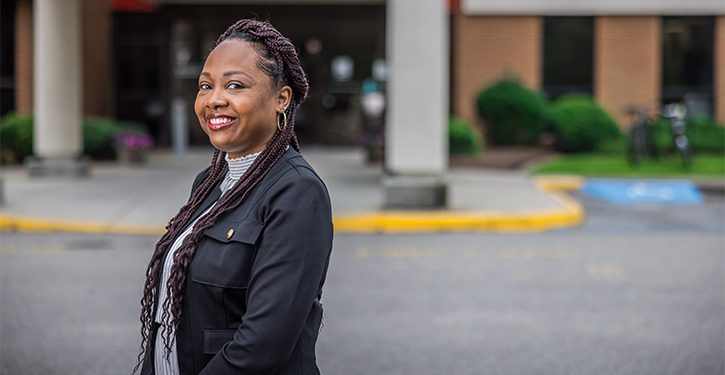
People, Place and Process
Regardless of the industry, Spencer acknowledged everyone is challenged with the labor market and staffing hurdles right now, making Y University even more necessary.
“If we can get people hired successfully and set them up with the right tools, we’re much more likely to keep them, because we’re competing with everybody right now,” explained Spencer, who also attended the Disney Institute. “It’s starting in a place of understanding what your organization’s needs are — whether it’s what development our current talent needs, or how we make sure once we find new talent we’re helping them feel a true connection to the organization and providing them the tools they need to be successful.”
One way to understand organizational needs is by simply asking your people. At the end of 2022, the Y conducted an employee experience survey. Spencer said getting those results informed them what they were doing well and what they needed to improve. Going through the Disney Institute and learning their quality service approach taught them how to do so.
“The customer obsession we have for our members has to be the customer obsession we have for our staff,” said Spencer. “We’re committed to making sure our Y serves our communities better than we ever have. But to do that — and what we learned at Disney — you have to treat internal customer service with the same intentionality as your external customer service.”
That’s exactly what the new onboarding, training and development program through Y University will begin to do. Spencer recommended any organization that wants to start this journey must have that understanding of needs and a partnership with leadership to shape and develop what the program’s going to be.
From there, it’s keeping in mind two points of focus. “It’s onboarding to a role successfully, but it’s also onboarding to an organization successfully,” said Spencer. “You have to have a global view of onboarding, training and development, and it has to go past those first 90 days.”
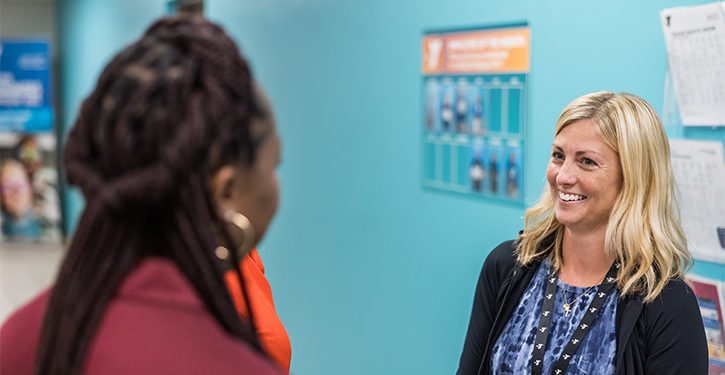
The Magic
Walters led his team to the Disney Institute because he wanted the pixie dust — a.k.a. the magic. Plus, he wanted to understand what it is about Disney people fall in love with and get emotional over.
He learned every single person at Disney goes through the training. They get the history of Walt Disney, the culture and the purpose. He realized the Y has some of those very same elements and questioned, “Why haven’t we replicated that yet?”
“We’re skipping to the member experience, but before we get to that, let’s talk about the team member experience first because they deserve it and also because that’s the magic,” said Walters. “If we can start getting every single person who comes on board this pixie dust feeling, then we have 2,600 employees feeling the magic. It needs to be so much more robust and memorable that people say, ‘This is the best place to work in the country.’ Forget the best Y, we want to be better than Disney. We’ve got to start somewhere, and this is a great place to begin.”
Photos by Mike Dragon.


